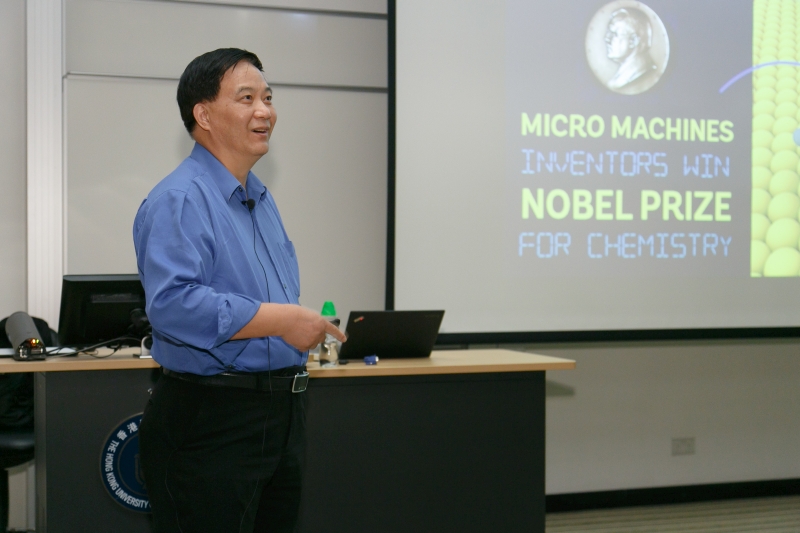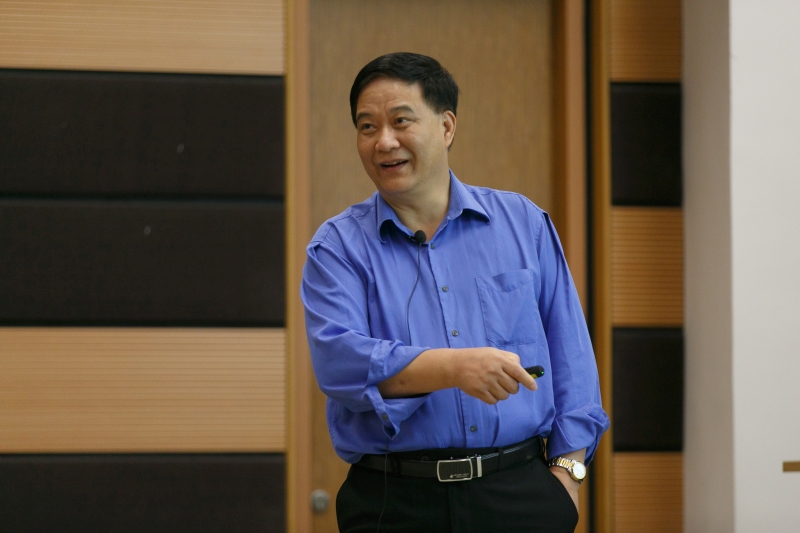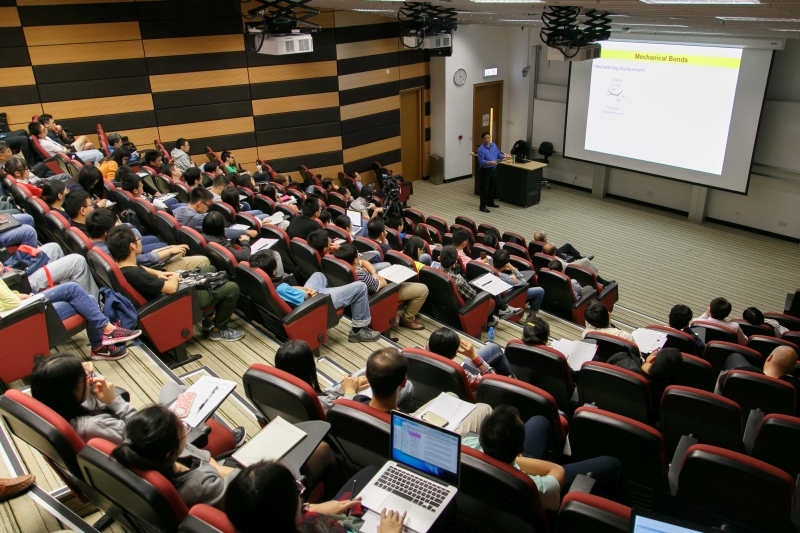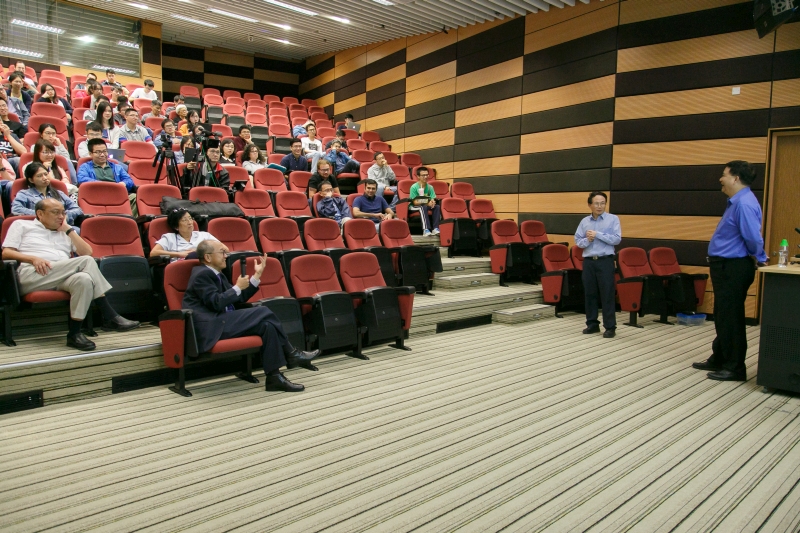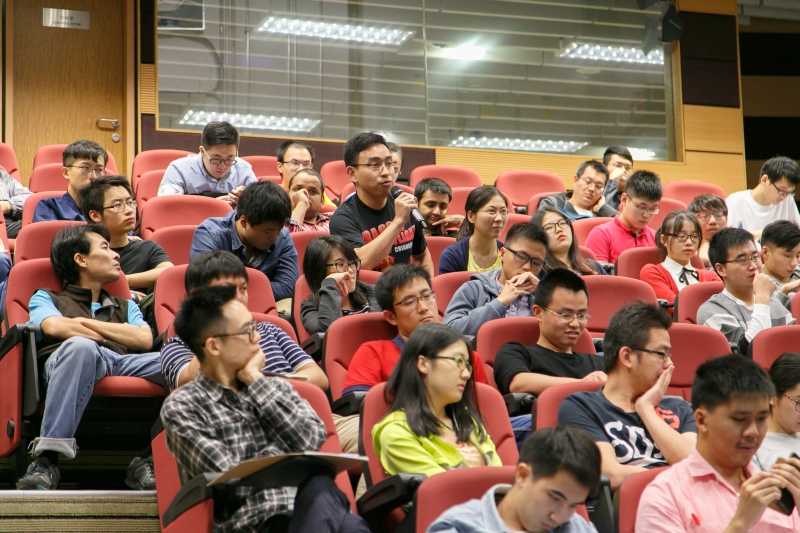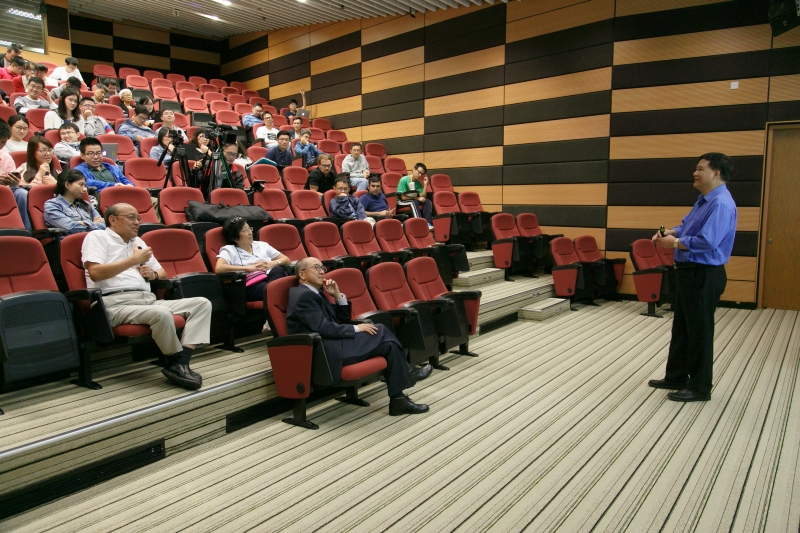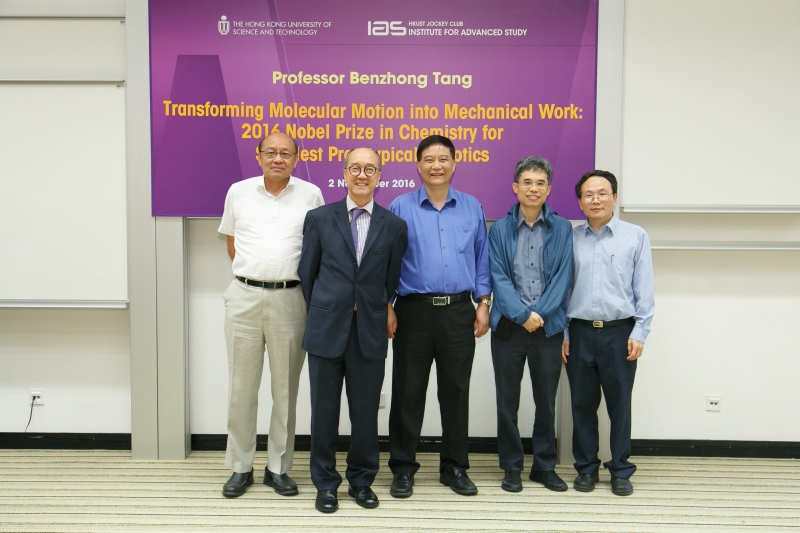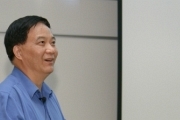Transforming Molecular Motion into Mechanical Work - 2016 Nobel Prize in Chemistry for Smallest Prototypical Robotics
Abstract
Machinery designates an assemblage of machines or mechanical apparatuses with mechanical movements (output) as a consequence of appropriate external stimuli (input). The use of molecular units as assembling parts can miniaturize the familiar tools developed since the industrial revolution of the 19th century, but meanwhile opens new dimensions of machinery that resembles those soft machines on molecular basis in the natural systems. The Nobel Prize in Chemistry 2016 is awarded to Jean-Pierre Sauvage, J. Fraser Stoddart and Bernard L. Feringa for their development of the molecular machines that are thousand times thinner than a hair strand. In this lecture, the speaker will show how these chemists had been challenged and eventually succeeded to achieve meaningful motions out from random Brownian movements of molecules. This is also the story of how by linking molecules together to design everything, from a tiny lift to motors, minuscule muscles and nano cars… Yet it is to be continued!
About the speaker
Prof. Tang Benzhong received his PhD from the Department of Polymer Chemistry at Kyoto University in 1988. He conducted postdoctoral research at University of Toronto and worked as a senior scientist in the central laboratory of NEOS Corporation, Japan. He joined the Department of Chemistry at HKUST as an Assistant Professor in 1994 and was promoted to Chair Professor in 2008. He is currently Stephen Kam Chuen Cheong Professor of Science.
Prof. Tang’s research interests include polymer chemistry and materials science. His research group is working on the creation of new molecules and polymers with novel structures and unique properties with implications for high-tech applications.
Prof. Tang is listed by the Institute for Scientific Information as a “Most Cited Scientist”. He received a Natural Science Award from the Chinese Government and a Senior Research Fellowship Award from the Croucher Foundation in 2007. He was elected to the Chinese Academy of Sciences in 2009. He is currently serving as editor-in-chief of Royal Society of Chemistry Polymer Chemistry Series and editor of Polymer Bulletin.

